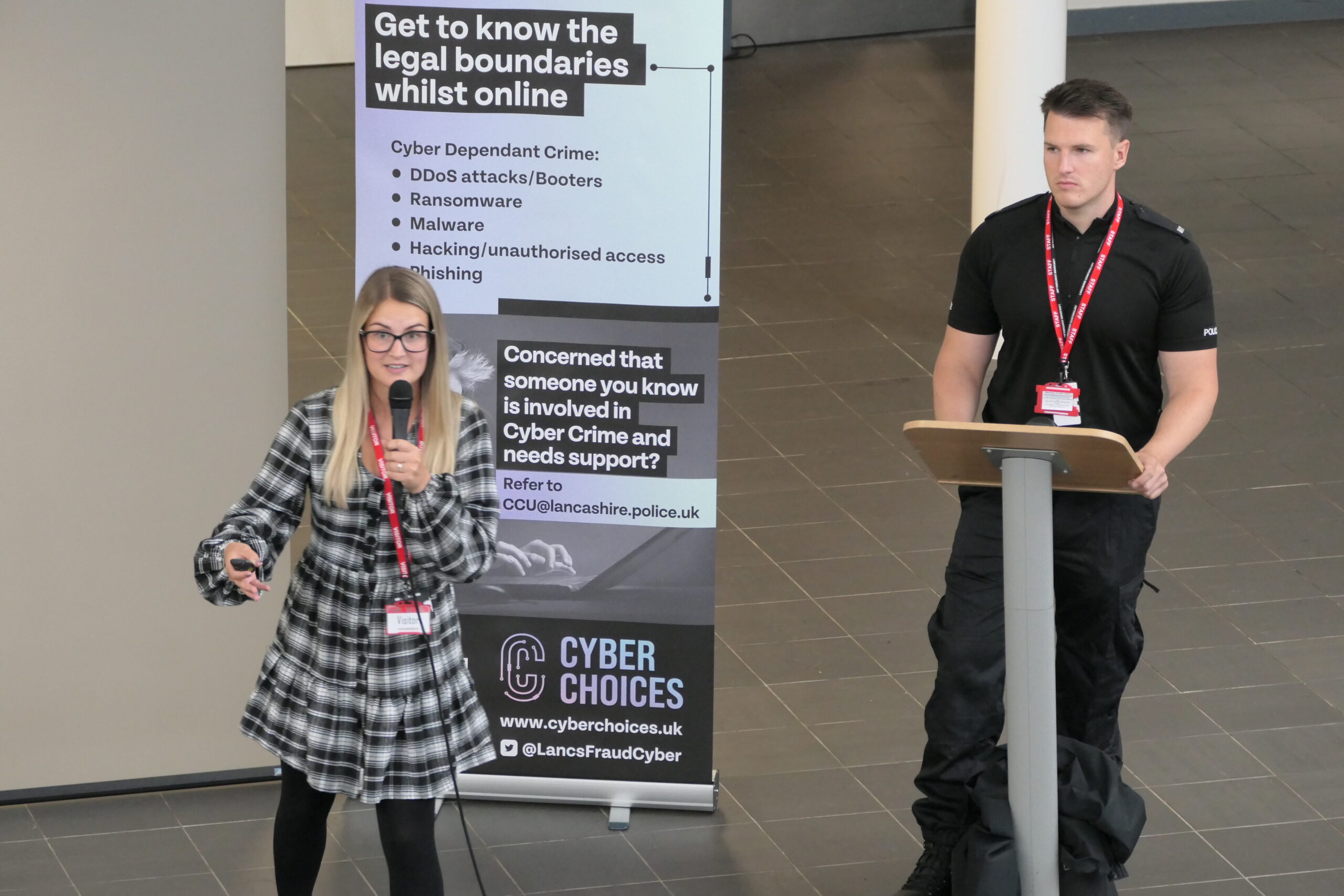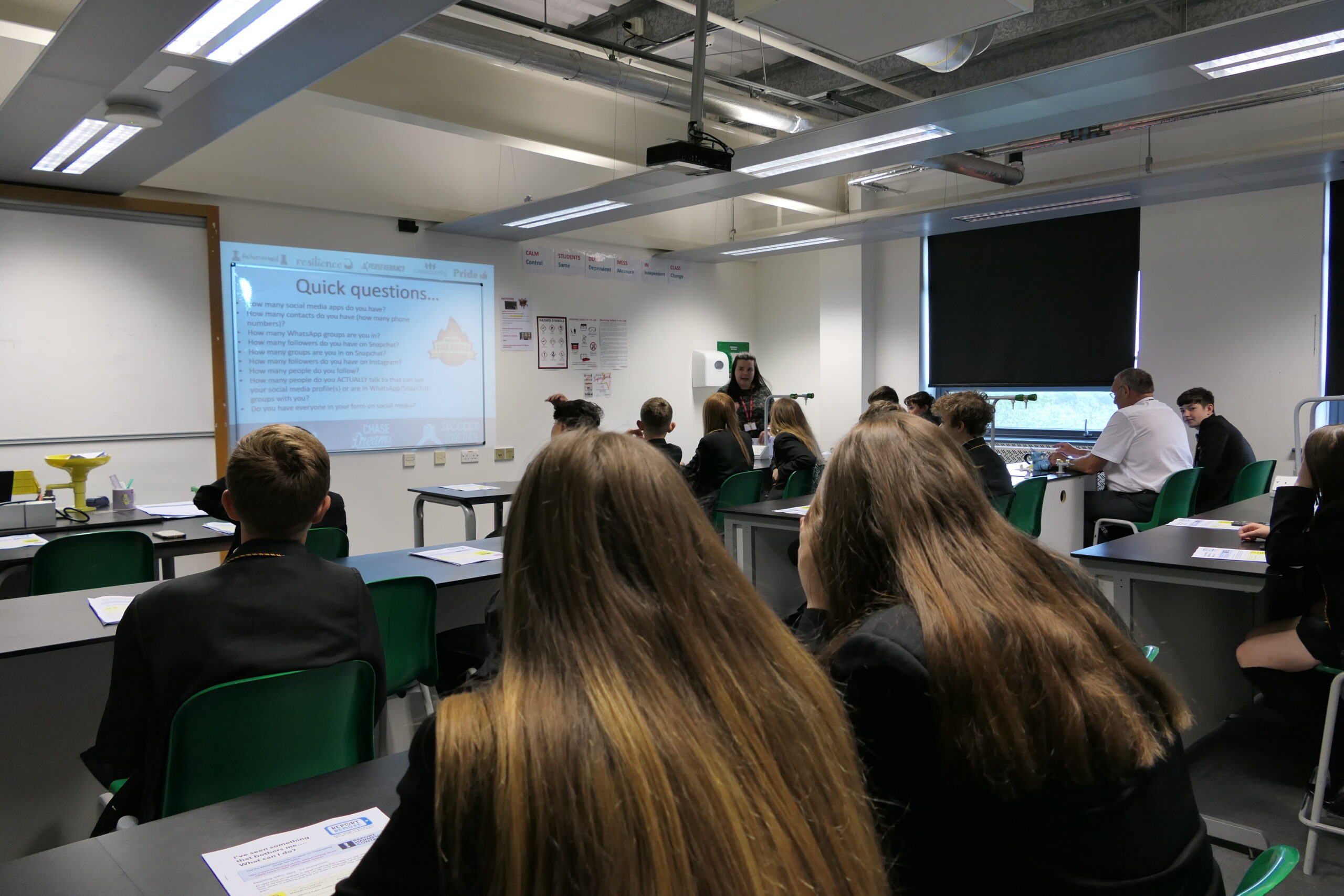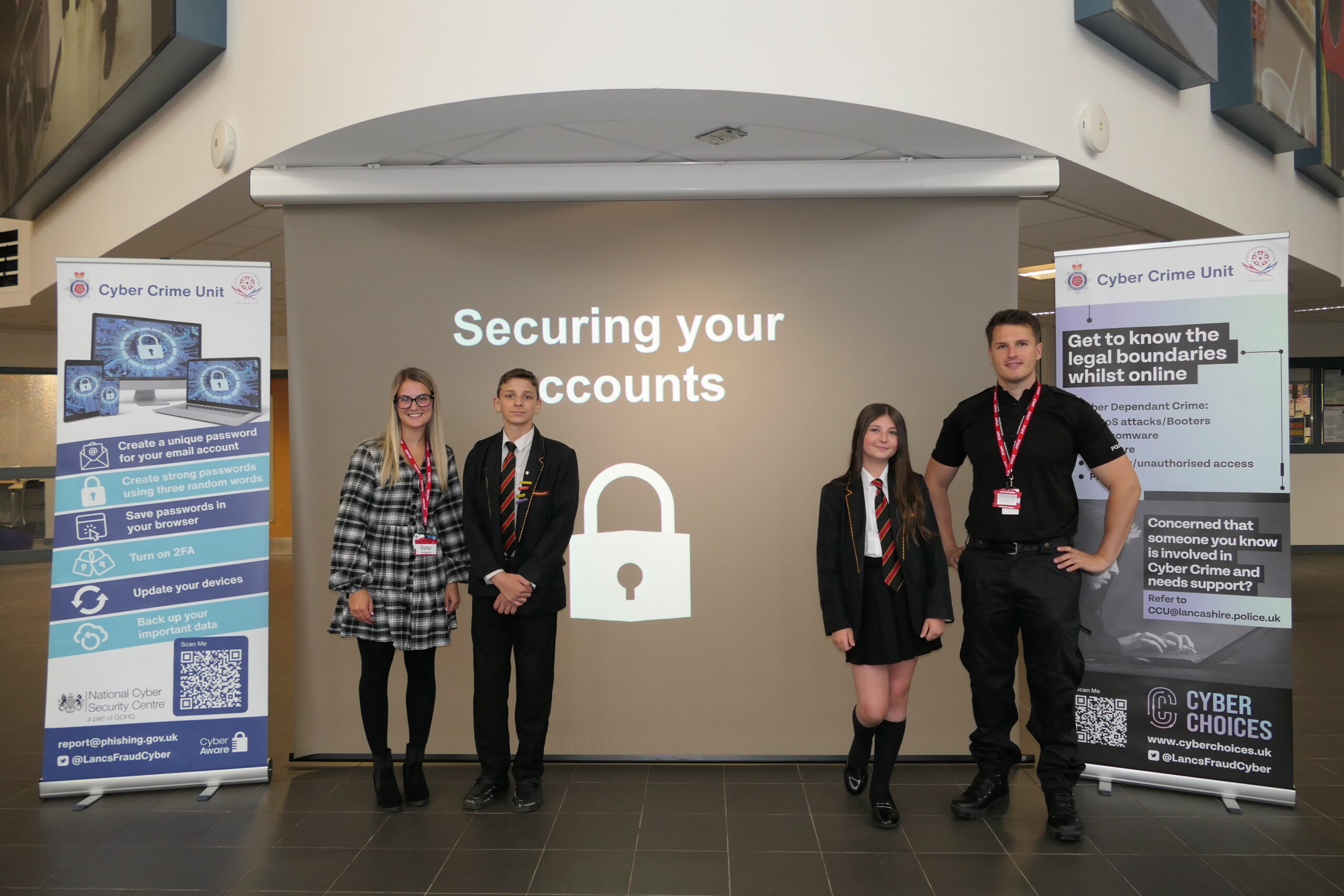Nationally we have seen a worrying increase in the amount of time students spend online post pandemic. At Shuttleworth College, Padiham, Lancashire, we do not permit phones in school but regularly deal with issues arising from students’ online interactions which take place outside school. This year we have felt passionately that students need some support navigating the unprecedented phenomenon that is social media.
We started our work with Social Media Manifestos – in form groups with their tutors, students shared what their worries and concerns were, what support they felt they needed from school and home, and also their suggestions for swapping their online interactions for real life ones. We rewarded winning forms with trips (which were of course phone free) and also treat afternoons in school.
Regular assemblies and form discussions around social media have been a thread running through the year too, even asking students and tutors to track the hours they spend online, but we felt that we needed something more impactful still.
On Monday 3 July 2023 we suspended all lessons for years 7-10 and timetabled a ‘drop down day’. Students benefitted from PSHE focused sessions exploring social media and the impact it can have in more detail. Emily-Jae Smith, Y10, said, “In my opinion our drop down day was very educational because we learned a lot of safety information that I didn’t know before that I can put into practice.” We looked at the Online Safety Bill and what it means for young people, and discussed the positives and negatives heralded by social media. We are not trying to demonise social media; we have looked previously at how beneficial it can be for a wealth of reasons, and we are acutely aware of the growth of this area in terms of training and employment.
We invited PC Charlie Bamber and Laura Nolan (Cyber Protect/Prevent Officer from the Cyber Crimes Unit at Lancashire Police) who talked to all years in assemblies about online security and keeping their data safe.
Fundamentally, students have identified they want help understanding the settings on their phones and the many apps they use and so we created a guide and allowed students to actually go on their phones, check their settings and amend as needed. We also taught them how to report anything inappropriate on each app they use, as well as to CEOP (Child Exploitation and Online Protection). We reminded students of the robust safeguarding procedures in school which include a dedicated safeguarding team and an anonymous service they can contact, Whisper, as well as talking to any staff member. Ella Dalby, Y7, said that, “We checked our screen time, how many contacts we have and how many groups we are in on Snapchat if we have it. We went on CEOP so we know how to report things. I took a screenshot of the website so it’s in my phone. For screen time we can set an amount of time to go on it so you’re not always on. We know to go to a trusted teacher or parent, and how to block people.”
Through our discussions this year we have felt students’ frustrations and wanted to help them to have a voice. They have felt frustrated at a lack of options for them in the local community, frustrated at apps for not keeping them safe from unsolicited messages or images, and frustrated that perhaps some adults don’t realise quite how challenging an online life can be for a young person. We facilitated a session called Have your say! where students could discuss their thoughts and opinions and channel them by drafting letters or emails to the directors of social media apps, the local press or local MP. We will be sending these on to ensure our students’ voices really are heard.
Tom Newton, Y9 said, “We looked at social media and how to stay safe on and off social media, and how dangerous it can actually be on social media. We looked how we can be at risk and how others can be at risk. We discussed the good and bad side of what will happen and how your comments could impact you in your future life. It’s important because if children our age are going on social media and saying mean things to a person or group of people that can cause harm, and some people don’t understand how hurtful it can be. It’s important that teachers know and we can teach teachers about social media and so they can understand our point of view.”
Finally, we ended the day with a session focused on resilience and mindfulness to try and give students some tangible strategies when they feel overwhelmed.
We fervently believe that our young people are facing challenges we could not have foreseen; at Shuttleworth we are doing our utmost to ensure our students are equipped not just to cope, but to thrive.





